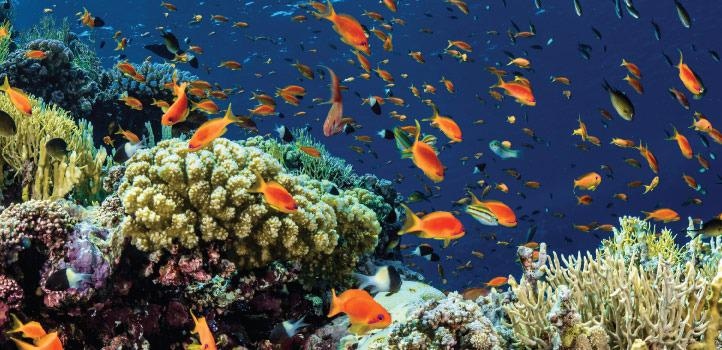Feb 24 2021
The use of a blend of beneficial bacteria is a simple yet robust concept to enhance the health of corals. This approach is being examined as part of worldwide scientific measures to boost the strength of corals, making them more stress-resistant and more likely to endure bleaching events linked with climate change.
 Cutting-edge research at KAUST is exploring the use of probiotic symbiotic bacteria to improve the growth and resilience of corals in the face of climate change. Image Credit: 2021 Morgan Bennett Smith.
Cutting-edge research at KAUST is exploring the use of probiotic symbiotic bacteria to improve the growth and resilience of corals in the face of climate change. Image Credit: 2021 Morgan Bennett Smith.
Corals depend on algal and bacterial symbionts for energy (via photosynthesis), toxin regulation, nutrients, and safety against attacks by pathogens. This complicated and intricately balanced relationship forms the basis of holobiont and coral reef health.
By contrast, similar to the use of probiotics in plant science to enhance growth and endurance, marine scientist Raquel Peixoto considers that corals could profit from a boost to their natural symbiotic partners during stress.
This is not the solution to the destruction of our coral reefs; the best solution lies in worldwide CO2 mitigation. But we’re hopeful that we can buy corals some time by using beneficial microorganisms for corals (or BMCs) and providing a ‘medicine’ to help them better cope with shifting environmental pressures and adapt to a changing world.
Raquel Peixoto, Marine Scientist and Associate Professor, KAUST
Peixoto joined KAUST in 2020 from the Federal University of Rio de Janeiro, Brazil. Earlier, Peixoto carried out experiments based on laboratory trials of BMCs jointly with KAUST scientists and has been continuing her innovative study at KAUST.
It is exciting to work right beside the Red Sea, which is arguably the best source of powerful coral probiotics on Earth. These reefs have adapted to higher temperatures and salinity than other regions, providing an ideal model for stress-tolerant corals and bacteria.
Raquel Peixoto, Marine Scientist and Associate Professor, KAUST
To make sure that BMCs are harmless, Peixoto and her group choose bacteria that are naturally symbiotic to particular coral species on each reef, taking care that no alien bacteria are introduced by mistake.
Peixoto is positive about their lab-based outcomes to date, which includes one study where an individual coral species was inoculated with a BMC consortium, including six bacteria strains. The microbiome of the coral experienced dynamic genetic and metabolic modifications that increased its chances of living under heat stress conditions.
As well as further proof of concept of BMCs, this provides us with a fantastic model of host-microbiome interactions, demonstrating just how intimate the relationships are.
Raquel Peixoto, Associate Professor, KAUST
But success in the laboratory must translate into success in the open oceans, which mandates novel multidisciplinary study. For example, increasing and seeding entire reefs might require the use of robots and artificial intelligence (AI), which could provide probiotics either directly to corals or into sediments. Slow-release “pills” could spread the probiotic consortia in the correct place at the right time.
“Bleaching events can be predicted, so specific regions could be targeted for a month or two ahead of time to boost coral health,” noted Peixoto.
Moreover, the KAUST team is taking into account the possibility of making “universal” BMC consortia that would be most ideal for entire reefs. At present, they are working with five general coral species from an offshore reef close to KAUST. They will examine the corals with a particular BMC consortium for every species but will also investigate their reaction to a global consortium.
“Ultimately, we may need to develop several consortia targeting the majority of species in a reef. If we have to pick, we’ll choose those corals that most need our help,” stated Peixoto
Journal Reference:
Peixoto, R. S., et al. (2021) Coral Probiotics: Premise, Promise, Prospects. Annual Review of Animal Biosciences. doi.org/10.1146/annurev-animal-090120-115444.